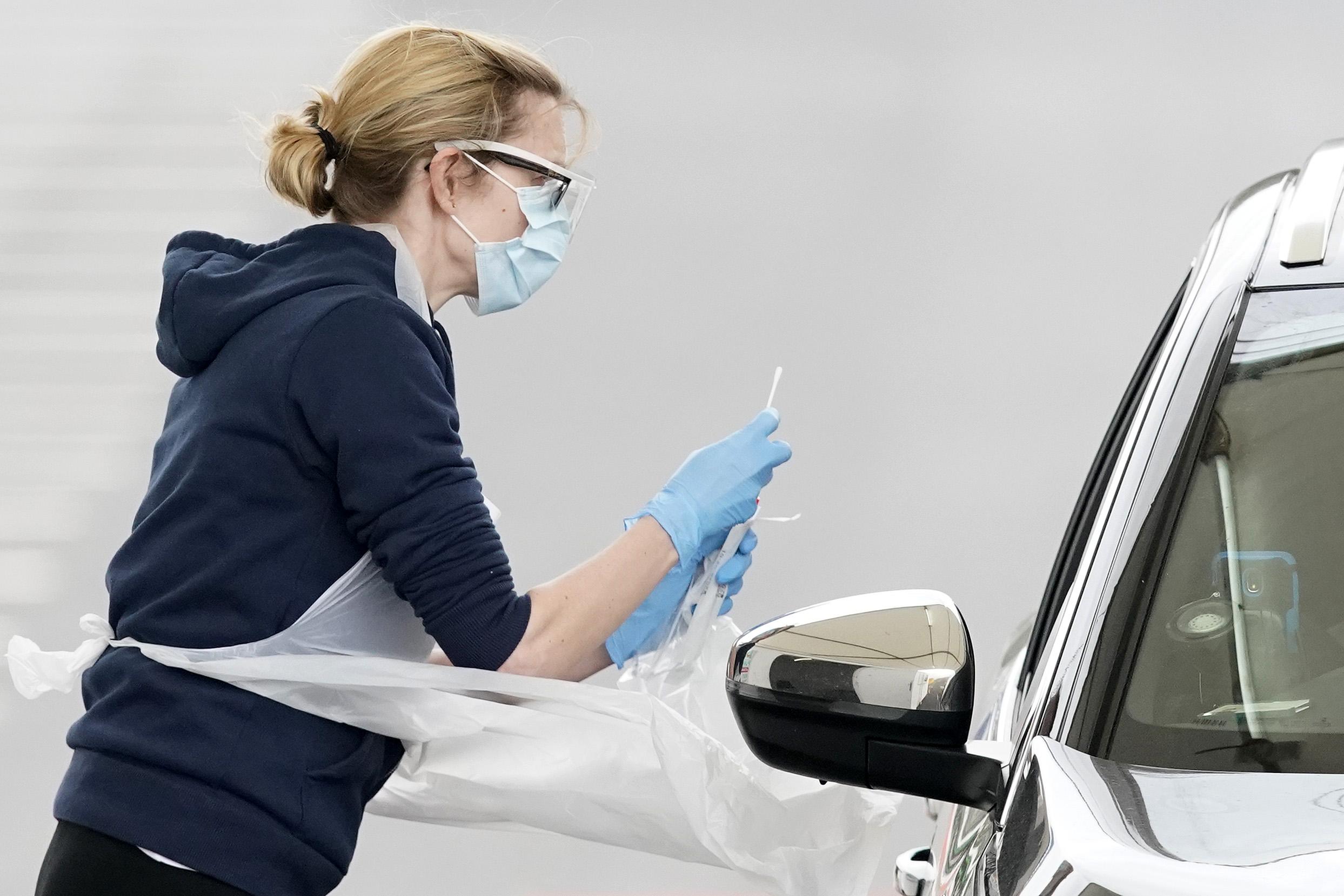Coronavirus: ‘Intensive’ contract-tracing and social distancing key to stopping spread of virus, study finds
Researchers say evidence from China ‘may demonstrate the huge scale of testing and contact tracing that’s needed to reduce the virus spreading’

Your support helps us to tell the story
From reproductive rights to climate change to Big Tech, The Independent is on the ground when the story is developing. Whether it's investigating the financials of Elon Musk's pro-Trump PAC or producing our latest documentary, 'The A Word', which shines a light on the American women fighting for reproductive rights, we know how important it is to parse out the facts from the messaging.
At such a critical moment in US history, we need reporters on the ground. Your donation allows us to keep sending journalists to speak to both sides of the story.
The Independent is trusted by Americans across the entire political spectrum. And unlike many other quality news outlets, we choose not to lock Americans out of our reporting and analysis with paywalls. We believe quality journalism should be available to everyone, paid for by those who can afford it.
Your support makes all the difference.Extensive contact tracing and isolation are the key to controlling the spread of coronavirus, according to a new study.
Researchers found that contact tracing to rapidly isolate people who could be infected with the disease reduced the length of time people were infectious in the community.
The study, published in Lancet Infectious Diseases on Monday, was based on an analysis of 391 coronavirus cases and 1,286 of their close contacts in Shenzhen, in China, over four weeks between 14 January and 12 February.
It found that contact tracing increased the speed at which new cases were confirmed by two days from an average of 5.5 days to 3.2 days with contact tracing.
Contact tracing also reduced the amount of time it took to isolate infected people by nearly two days from an average of 4.6 days down to 2.7, the study found.
Dr Ting Ma, from the Harbin Institute of Technology at Shenzhen, said: “The experience of Covid-19 in the city of Shenzhen may demonstrate the huge scale of testing and contact tracing that’s needed to reduce the virus spreading.
“Some of the strict control measures enforced here, such as isolating people outside their homes, might be unlikely to be replicated elsewhere, but we urge governments to consider our findings in the global response to Covid-19.
“To achieve similar results, other countries might be able to combine near-universal testing and intensive contact tracing with social distancing and partial lockdowns.”
The study was conducted by researchers from Johns Hopkins Bloomberg School of Public Health, Shenzhen Centre for Disease Control and Prevention, Harbin Institute of Technology at Shenzhen, and Peng Cheng Laboratory, Shenzhen.
It said that in Shenzhen, people with symptoms were isolated and treated in hospital before their test results were known, and those without symptoms were quarantined at dedicated facilities.
Close contacts who tested negative were quarantined at home or in a dedicated facility and monitored for 14 days, it added.
The study’s authors analysed data from 391 people diagnosed with Covid-19 after they showed symptoms and 1,286 of their close contacts – people who shared a household with infected patients up to two days before they started showing symptoms or interacted with them socially by travelling or eating together.
The contacts were tested irrespective of whether they had symptoms in order to identify infected people who were asymptomatic.
The study found that a fifth of people diagnosed with Covid-19 after being contract traced – 17 out of 87 – had not developed any symptoms and 30 per cent did not have a fever.
While the length of time a person remains infectious is not yet known reducing the amount of time that infected people interacted with others appears to have helped reduce the virus spreading, the study said.
It also said that transmission was most likely between people who shared a household, but that not all close contacts caught Covid-19, with only 11 per cent of close contacts of this kind developing the disease.
Of close contacts who travelled together with an infected person, an average of 6 per cent developed the disease, while 9 per cent of those who shared a meal with an infected person caught coronavirus.
The authors stressed that the data did not give any insights into why some cases cause higher levels of transmission than others.
They also highlight several limitations to their study, including that it is impossible to trace every potential contact an individual has and contact tracing therefore focuses on close contacts who are most likely to be infected.
PA
Join our commenting forum
Join thought-provoking conversations, follow other Independent readers and see their replies
Comments